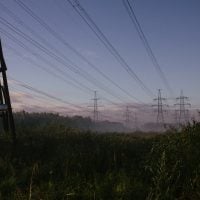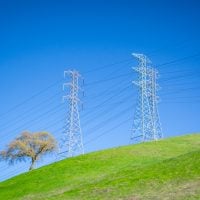In the renewable energy sector, donor relationships are not merely transactional; they are foundational to the sustainability and growth of initiatives aimed at combating climate change and promoting sustainable practices. Building strong relationships with donors can lead to increased funding, greater advocacy, and enhanced visibility for projects that aim to harness wind, solar, and other renewable resources. These relationships are essential for NGOs operating in this space, as they provide the financial backing necessary to implement innovative solutions and drive impactful change.
Moreover, a robust donor relationship can foster a sense of community and shared purpose. When donors feel connected to the mission and vision of an organization, they are more likely to engage actively, providing not just financial support but also valuable insights, networks, and resources. This collaborative spirit can lead to innovative partnerships that amplify the impact of renewable energy initiatives, making it crucial for NGOs to prioritize relationship-building as a core strategy. Are You Working on Solar Innovation or Clean Energy Access? Join us to receive updates.
Identifying Potential Donors in the Renewable Energy Sector
Identifying potential donors in the renewable energy sector requires a strategic approach that combines research, networking, and an understanding of the philanthropic landscape. Start by mapping out organizations and individuals who have a vested interest in sustainability and environmental issues. This includes foundations that focus on climate change, corporations with corporate social responsibility (CSR) initiatives related to renewable energy, and high-net-worth individuals passionate about environmental stewardship.
Utilizing platforms like Foundation Center or Guidestar can provide valuable insights into potential funders’ giving histories and priorities. Additionally, attending industry conferences and networking events can help establish connections with potential donors who share a commitment to renewable energy. Engaging with local businesses that may benefit from renewable energy initiatives can also uncover new funding opportunities.
By broadening the scope of potential donors, NGOs can create a diverse funding base that enhances their resilience and capacity for growth.
Creating a Compelling Case for Support in the Renewable Energy Sector
Crafting a compelling case for support is essential for attracting donors in the renewable energy sector. This case should clearly articulate the organization’s mission, the specific challenges it aims to address, and the innovative solutions it proposes. Highlighting the urgency of transitioning to renewable energy sources due to climate change can resonate deeply with potential donors who are increasingly aware of environmental issues.
In addition to outlining the problem and proposed solutions, it is crucial to include data and real-world examples that demonstrate the effectiveness of your initiatives. For instance, showcasing successful projects that have led to measurable reductions in carbon emissions or increased access to clean energy can provide tangible evidence of impact. By weaving together emotional narratives with hard data, NGOs can create a compelling case that not only informs but also inspires potential donors to contribute.
Leveraging Networking and Partnerships in the Renewable Energy Sector
Networking and partnerships are vital components of successful fundraising in the renewable energy sector. Collaborating with other organizations, businesses, and government entities can amplify an NGO’s reach and effectiveness. For example, forming alliances with local governments can facilitate access to funding opportunities while also enhancing credibility within the community.
These partnerships can lead to joint initiatives that pool resources and expertise, ultimately driving greater impact. Moreover, attending industry-specific events and forums can provide invaluable networking opportunities. Engaging with stakeholders in the renewable energy sector allows NGOs to stay informed about emerging trends and funding opportunities while also building relationships with potential donors.
By actively participating in discussions and showcasing their work, NGOs can position themselves as thought leaders in the field, attracting interest from donors who are eager to support innovative solutions.
Cultivating Trust and Transparency with Donors in the Renewable Energy Sector
Trust and transparency are cornerstones of successful donor relationships in the renewable energy sector. Donors want assurance that their contributions will be used effectively and responsibly. To cultivate this trust, NGOs should prioritize open communication about how funds are allocated and the impact they generate.
Regular updates on project progress, financial reports, and success stories can help build confidence among donors. Additionally, being transparent about challenges faced during project implementation is equally important. Sharing lessons learned from setbacks not only demonstrates accountability but also shows donors that the organization is committed to continuous improvement.
By fostering an environment of trust and transparency, NGOs can strengthen their relationships with donors, encouraging long-term support and engagement.
Effective Communication Strategies for Donor Engagement in the Renewable Energy Sector
Effective communication is key to engaging donors in the renewable energy sector. Tailoring communication strategies to meet the preferences of different donor segments can enhance engagement levels significantly. For instance, some donors may prefer detailed reports outlining project metrics, while others may appreciate concise updates highlighting key achievements.
Understanding these preferences allows NGOs to communicate more effectively and keep donors informed about their contributions’ impact. Utilizing various communication channels is also essential for reaching a broader audience. Social media platforms can be powerful tools for sharing success stories and engaging with supporters in real-time.
Email newsletters can provide regular updates on projects and upcoming events, while personalized thank-you notes can reinforce donor appreciation. By diversifying communication strategies, NGOs can maintain ongoing engagement with donors and foster a sense of community around their mission.
Demonstrating Impact and Results to Donors in the Renewable Energy Sector
Demonstrating impact is crucial for maintaining donor interest and support in the renewable energy sector. Donors want to see tangible results from their contributions, so it is essential for NGOs to track and report on key performance indicators (KPIs) related to their projects. This could include metrics such as the number of households gaining access to clean energy or reductions in greenhouse gas emissions achieved through specific initiatives.
In addition to quantitative data, qualitative stories from beneficiaries can powerfully illustrate the impact of donor contributions. Sharing testimonials from individuals or communities who have benefited from renewable energy projects can create an emotional connection that resonates with donors. By combining data-driven results with personal narratives, NGOs can effectively demonstrate their impact and reinforce the value of donor support.
Tailoring Stewardship and Recognition for Donors in the Renewable Energy Sector
Tailoring stewardship and recognition efforts for donors is essential for fostering long-term relationships in the renewable energy sector. Each donor has unique motivations for giving, so understanding these motivations allows NGOs to create personalized recognition strategies that resonate with individual supporters. For example, some donors may appreciate public acknowledgment through social media shout-outs or inclusion in annual reports, while others may prefer private expressions of gratitude such as personalized letters or exclusive invitations to project site visits.
Creating opportunities for donors to engage directly with projects can also enhance stewardship efforts. Organizing site visits or volunteer days allows donors to see firsthand how their contributions are making a difference. This not only strengthens their connection to the organization but also provides them with a deeper understanding of the challenges faced in implementing renewable energy solutions.
Nurturing Long-Term Relationships with Donors in the Renewable Energy Sector
Nurturing long-term relationships with donors requires ongoing engagement and commitment from NGOs in the renewable energy sector. Regular communication is key; keeping donors informed about project developments, successes, and challenges fosters a sense of partnership that encourages continued support. Additionally, involving donors in decision-making processes or seeking their input on future initiatives can deepen their investment in the organization’s mission.
Recognizing milestones in donor relationships is also important for nurturing long-term connections. Celebrating anniversaries of support or acknowledging significant contributions through special events or recognition programs can reinforce a sense of belonging among donors. By prioritizing relationship-building efforts, NGOs can cultivate loyal supporters who are invested in their mission over the long haul.
Adapting to Changes and Challenges in the Renewable Energy Sector
The renewable energy sector is dynamic and constantly evolving due to technological advancements, policy changes, and shifting market conditions. NGOs must remain agile and adaptable to navigate these changes effectively while maintaining strong donor relationships. This involves staying informed about industry trends and being proactive in addressing challenges that may arise.
For instance, if new regulations impact project implementation timelines or funding availability, communicating these changes transparently with donors is crucial. By demonstrating adaptability and resilience in response to challenges, NGOs can reinforce trust among supporters while showcasing their commitment to achieving long-term goals despite obstacles.
Measuring and Evaluating the Success of Donor Relationships in the Renewable Energy Sector
Measuring and evaluating the success of donor relationships is essential for continuous improvement within NGOs operating in the renewable energy sector. Establishing clear metrics for assessing donor engagement—such as retention rates, average gift sizes, or donor satisfaction surveys—can provide valuable insights into relationship health. Regularly reviewing these metrics allows organizations to identify areas for improvement and adjust strategies accordingly.
For example, if retention rates decline among certain donor segments, it may indicate a need for enhanced stewardship efforts or more personalized communication strategies. By prioritizing evaluation processes, NGOs can ensure they are effectively nurturing donor relationships while maximizing their impact within the renewable energy sector. In conclusion, building strong donor relationships is vital for NGOs working within the renewable energy sector.
By understanding the importance of these relationships, identifying potential donors strategically, creating compelling cases for support, leveraging networking opportunities, cultivating trust through transparency, employing effective communication strategies, demonstrating impact clearly, tailoring stewardship efforts thoughtfully, nurturing long-term connections diligently, adapting to changes proactively, and measuring success rigorously—NGOs can enhance their fundraising efforts significantly while driving meaningful change toward a sustainable future.
In the renewable energy sector, building strong donor relationships is crucial for securing funding and support for various projects. An article that complements this topic is the CFPs: Local Transition and Media Projects 2025. This article discusses initiatives aimed at fostering local transitions and media projects, which can be instrumental in raising awareness and garnering support from potential donors. By understanding the dynamics of local transitions and effectively communicating through media, organizations in the renewable energy sector can enhance their donor engagement strategies and build lasting relationships.









































